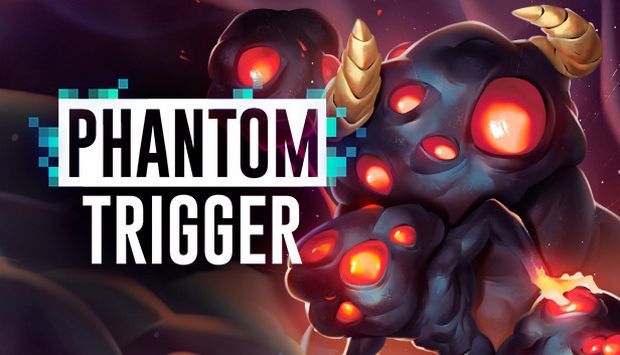Phantom Trigger is the new game from Tiny Build and Bread Team Games and came out of relative obscurity a mere few months before its release. If you haven’t seen or heard of the game, the team behind it describes it in the following way – “Phantom Trigger is a Hardcore Neon Slasher with RPG and Roguelike elements.” That’s a whole lot of different genres to fit in one game if you ask us.
Sometimes it works and sometimes it just doesn’t.
Art Style
Phantom Trigger is a vibrant, beautiful array of colors in motion. It lives up to its self-proclaimed description of a hardcore neon slasher. Every pixel on the screen is intentional. There isn’t a single piece that doesn’t look amazing and the game relishes in this simple fact.
While the title does have the retro pixelated feel to it that we’ve become so used to seeing in games of this genre, it doesn’t detract from the overall direction. In fact, it adds to it. The retro style visuals are a firm indicator of what type of world you’re about to enter and what kind of crazy spectacles you’ll see while you’re there.
Even the points in the game that are meant to appear as though your screen is freaking out and giving you an emergency broadcast screenshot are intentional and driven by obvious design.
The music and sound are marvelous. Seriously. It may be worth playing this game just for the audio integrity of the title.
Gameplay
It’s not difficult to find another game with controls similar to those of Phantom Trigger. Walk around with your directional keys, perform a movement action (in this case it’s warping) with another, and the rest remain to aid attacking in manner of speaking. It’s familiar but also somewhat satisfying, and it doesn’t leave you having to think about which button does what at every new section of the game.
You can dart around and flail wildly if you like and still end up doing a decent bit of damage in the meantime. The real joy of the game comes when you’ve mastered the various tools at your disposal to situate your enemies in an advantageous position before hacking, slashing and beating them up.
There’s an incredibly understated puzzle factor built into the core of Phantom Trigger as well. While you’ll need to use your brain a tad for these components, it’s also fairly obvious that the creators didn’t want you to get stuck for long and instead focus on the action.
If you long for a game that lets you do the same thing to the same enemies over and over again – you’ll be right at home.
Enemies
Some are big blobs with bright colored protuberances. Others are walking upright with CRT televisions where their heads should be. None of them make a bit of sense and they tend to toss out a good bit of damage – but your first few interactions with them are definitely going to make an impression.
Phantom Trigger is hard. There are only two difficulties and the default mode is the harder of the two. If you’re looking for a challenge, you certainly won’t have any trouble finding one here. But the flip side of this coin is that the difficulty feels contrived. There’s no real reason one enemy is tougher than another other than that they simply… are.
Hordes of enemies appear out of nowhere to attack you at select points of the game, but we couldn’t really discern whether the majority of those occasions had any relationship to what was happening in-game or not. This is fun for a while, but there’s no reason we need to fight twenty randomly appearing enemies simply when we walk through a corridor.
Story
Many games in the last decade have left us feeling breathless by the end of the storyline. Even games without large cinematic masterpieces have been on their game. Phantom Trigger is not one of those games. There certainly is a storyline and it can be compelling at times. Unfortunately, it’s not compelling consistently enough to encourage the average player to care about the monotonous gameplay.
This isn’t necessarily a knock on the game. There are plenty of individuals who long for this type of game and rarely get it. However, it’s hard to not feel like the story pieces of the game were an afterthought. Its saving grace is that this afterthought perfectly combines the story and the main gameplay in Phantom Trigger and brings them together in a way that’s actually quite brilliant.
Another frustrating piece about the game is that there is nearly zero direction on controls or goals. Some would say that is part of the experience and we don’t totally disagree. However, it’s sometimes nice to at least have an idea which way you’re supposed to be navigating or even have the knowledge of what you’re supposed to be doing when a game is this monolithic.
Recommendation: If you prefer to have robust depth and need a more intwined story throughout your gameplay, you might want to save this one for a rainy day. If you like the art style, are familiar with rogue-like games, and don’t get too easily bored by repetitive gameplay, we really can’t see a reason why you wouldn’t like Phantom Trigger. It’s a short, smart and beautiful game.



